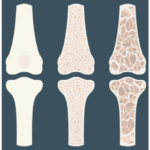Home Search
bone health - search results
If you're not happy with the results, please do another search
I see lots of ads and Web pages touting the benefits of antioxidant vitamins....
A. Alice H. Lichtenstein, DSc, director of the Cardiovascular Nutrition Laboratory at the Human Nutrition Research Center on Aging and executive editor of this...
Diet and Your Thyroid
The thyroid gland curls around your windpipe just below your Adam’s apple. This butterfly-shaped gland makes and stores hormones that help control heart rate,...
Spring Greens!
What better way to welcome the season than to treat winter-weary palates to the splendor of leafy greens? Greens are packed with vitamins, minerals,...
Move More, More Often to Maintain Weight Loss
Move More, More Often to Maintain Weight Loss
A study provided six months of mediated behavior change and dietary counselling for weight loss to relatively...
Dietary Supplements: What You Need to Know
More than half of American adults take dietary supplements—oral products containing at least one vitamin, mineral, herb or other botanical, amino acid, or enzyme—in...
Q. How are nutrients in fortified or enriched foods different from nutrients in dietary...
A. Alice H. Lichtenstein, DSC, Gershoff professor of nutrition science and policy at the Friedman School and executive editor of Tufts Health & Nutrition...
Should YOU Worry About Osteoporosis?
In estimated 10 million Americans have osteoporosis, a bone disease that occurs when the body loses calcium from bone faster than it builds new...
Vitamin D and Your Health: Unanswered Questions
If you take supplements in an effort to raise your blood levels of vitamin D, protect your bone health, or boost your immune system,...
5 Thanksgiving Feast Myths Busted!
The feast that officially kicks off the holiday season is almost here. Thanksgiving is steeped in the comfort and familiarity of traditional foods—turkey and...
Recognizing the Health Dangers of Ultraprocessed Foods
For most of human history, food was difficult to come by and humans battled starvation and malnutrition. The development of food processing helped positively...

































